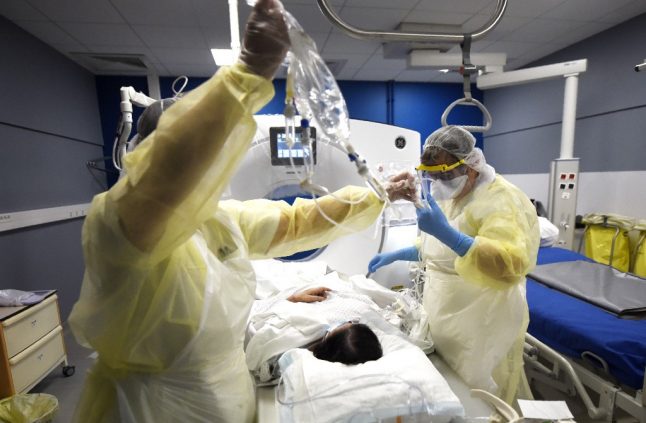China reported its first cases of the new coronavirus in December. But was COVID-19 already silently circulating? To find out scientists are looking for “patient zeros” by tracking the evolution of the virus itself.
This genetic detective work is tracing the family tree of the coronavirus that has killed tens of thousands in its relentless spread across the planet.
READ ALSO What is the 'French strain' of coronvirus and how was it discovered?
It could also help find out if the virus was spreading in other countries before the first infections were officially recorded.
In France, a cluster of cases was discovered in late January.
But a new study published in the International Journal of Antimicrobial Agents has suggested the virus was already in the country a month earlier.
A retrospective analysis of samples taken from 14 intensive care patients with influenza-like symptoms at the Avicenne and Jean-Verdier hospitals in Paris found one positive COVID-19 case — a 42-year-old French resident who had not visited China. He was hospitalised on December 27.
The patient named Amirouche Hammar, from Bobigny in the north-eastern Paris suburbs recovered but has said he had no idea where he caught the virus because he had not been abroad.
Hammar was admitted to hospital suffering from a dry cough, a fever and breathing problems – symptoms which would later become known as main signs of coronavirus.
One theory for how Hammar caught the disease centres on his wife who worked at a supermarket near Paris Charles de Gaulle airport and could have come into contact with people who had recently arrived from China.
France's government says it would consider investigating the case.
Olivier Bouchaud, head of the infectious diseases department at Avicenne said at first the virus spreads “quietly in the population, without anyone detecting its presence”.
So evidence of earlier infections would only confirm what many scientists had suspected, he told AFP.
It might also help explain cases like that of Aicha, a 57-year-old medical secretary who was hospitalised in Marseille in mid-January with severe respiratory symptoms.
At the time the mysterious outbreak of pneumonia cases in the Chinese city of Wuhan was still seen as a faraway problem.
France did not have a single confirmed case and the World Health Organisation was still weeks away from giving it the name COVID-19.
Aicha's husband Jacques, a doctor, said she had “all the clinical signs” of the disease, including loss of taste and smell. But her tests have been inconclusive.
Other countries are discovering they may have had earlier infections. In the United States, autopsies performed on suspicious deaths in California have revealed infections before the first official case on January 21st.
But Samuel Alizon, of the French National Centre for Scientific Research at Montpellier University, has cautioned that it is important to distinguish between isolated cases and the origin of the “epidemic wave”.



 Please whitelist us to continue reading.
Please whitelist us to continue reading.
Member comments